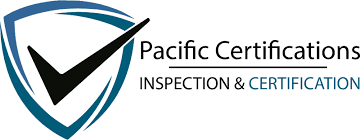How to Identify and Address ISO 9001 Non-Conformities

Introduction
In the world of quality management, adherence to ISO 9001 standards is a critical aspect for businesses striving for excellence. ISO 9001:2015 sets out the criteria for a quality management system and is based on a number of quality management principles including a strong customer focus, the motivation and implication of top management, the process approach, and continual improvement.
However, despite the best efforts, organizations may sometimes face non-conformities with these standards. Identifying and addressing these non-conformities is essential for maintaining the integrity of the quality management system and ensuring continuous improvement. In this blog, we will explore how organizations can effectively identify and address ISO 9001 non-conformities.
Understanding ISO 9001 Non-Conformities
A non-conformity in the context of ISO 9001 is a deviation from the set standards and requirements. This can be in the form of a process failure, a product defect, or any issue that indicates the quality management system is not being properly implemented or maintained. Recognizing these non-conformities is the first step towards rectification and improvement.
Identification of Non-Conformities
Regular Audits and Assessments: Conducting regular internal audits is a proactive way to identify non-conformities. These audits should be thorough and cover all aspects of the ISO 9001 standards.
Feedback from Stakeholders: Customer feedback, employee observations, and supplier comments can be valuable sources of information on potential non-conformities.
Performance Monitoring: Regular monitoring of key performance indicators (KPIs) and other metrics can highlight areas where the processes do not meet the required standards.
Management Reviews: These reviews, when conducted periodically, can bring to light any discrepancies or deviations from the ISO standards.
Addressing the Non-Conformities
Once a non-conformity is identified, it is crucial to address it promptly and effectively.
Root Cause Analysis: Conduct a thorough investigation to understand the root cause of the non-conformity. Tools like the Five Whys, Fishbone Diagrams, or Pareto Analysis can be useful in this process.
Corrective Action Plan: Develop a corrective action plan that not only addresses the specific non-conformity but also looks into preventing its recurrence. This plan should be detailed, with clear responsibilities and timelines.
Implementation and Monitoring: Implement the corrective actions and closely monitor their effectiveness. This includes ensuring that the actions are carried out as planned and evaluating their impact on the quality management system.
Documentation and Record Keeping: Keep detailed records of the non-conformity, the investigation findings, the corrective actions taken, and the results of those actions. This documentation is crucial for future reference and for demonstrating compliance with ISO 9001 requirements.
Review and Continual Improvement: Finally, review the entire process to learn from the non-conformity. This should feed into the organization's continual improvement process, helping to refine and enhance the quality management system.
Conclusion
Addressing non-conformities in an ISO 9001 quality management system is not just about fixing problems; it's about taking proactive steps towards continual improvement and maintaining a high standard of quality. By regularly monitoring, identifying, and efficiently addressing these non-conformities, organizations can ensure they consistently meet and exceed the requirements of ISO 9001, thereby enhancing their operational efficiency and customer satisfaction. Remember, the goal is not just to comply with standards, but to embed quality into the very fabric of the organization.
For specialized guidance and support in achieving and maintaining ISO 9001 certifications, organizations can reach out to Pacific Certifications at [email protected]. With expertise in management system certifications, Pacific Certifications can assist in navigating the complexities of ISO compliance and quality management system optimization.
Pacific Certifications is accredited by ABIS, in case you need support with ISO certification for your business, please contact us at [email protected] or +91-8595603096.
Ready to get ISO certified?
Contact Pacific Certifications to begin your certification journey today!
Suggested Certifications –
Read more: Pacific Blogs

